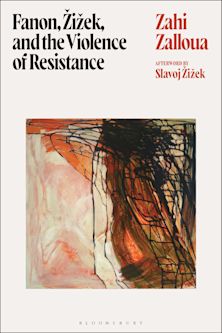Melancholia Africana
The Indispensable Overcoming of the Black Condition
Melancholia Africana
The Indispensable Overcoming of the Black Condition
This product is usually dispatched within 2-4 weeks
- Delivery and returns info
-
Flat rate of $10.00 for shipping anywhere in Australia
Description
Melancholia Africana argues that in the African and Afro-diasporic context, melancholy is rooted in collective experiences such as slavery, colonization, and the post-colony. From these experiences a theme of loss resonates—loss of land, of freedom, of language, of culture, of self, and of ideals born from independence. Nathalie Etoke demonstrates that, beyond territorial expropriation and the pain inflicted upon the body and the soul, the violence that seals the encounter with the ‘other’ annihilates an age-old cycle of life. In the wake of this annihilation, continental and diasporic Africans strive to reconcile that which has been destroyed with what has been newly introduced. Their survival depends on their capacity to negotiate the inherent tension of their historical becoming. The book develops a transdisciplinary method encompassing historicism, critical theory, Africana existential thought, and poetics.
Table of Contents
Foreword by Lewis R. Gordon
Translator's Note
Author's Introduction
Part I: Melancholia Africana: Scattered Fragments of Africa
1. Loss, Mourning, and Survival in Africa and the Diaspora
2. For a Diasporic Consciousness
3. At the end of daybreak… the strength to see tomorrow
4. Pain that Sings the Happiness to Come
Part II: How Does One Make Sense of Postcolonial Nonsense?
1. Scarlet Dawns of a Memory of Forgetting
2. From Death to Life in the Country of a Thousand Hills
3. From the Gaze of the Other to Self-Reflection
4. “On va faire comment ?”: Fact of Language, Civic Renunciation, or Theodicy of the Everyday in the Postcolony
5. Coda
Epilogue: An Interview with Nathalie Etoke conducted by LaRose T. Parris (2019)
Product details
| Published | 18 Jun 2019 |
|---|---|
| Format | Paperback |
| Edition | 1st |
| Extent | 112 |
| ISBN | 9781786613011 |
| Imprint | Rowman & Littlefield |
| Dimensions | 217 x 154 mm |
| Series | Creolizing the Canon |
| Publisher | Bloomsbury Publishing |
Reviews

ONLINE RESOURCES
Bloomsbury Collections
This book is available on Bloomsbury Collections where your library has access.


































